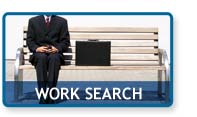Article
 Top secret or full disclosure?
Top secret or full disclosure?
“I don’t like to share my personal life… it wouldn’t be personal if I shared it.”
~ George Clooney
How much information is too much information…or not enough information…and how can sharing too much or too little impact your job search outcome?
The context in which we meet people often dictates the kind of information we share with them. What you share with your friends, close colleagues and perhaps professionals you are involved with will be quite different from what you share with casual acquaintances, members of your network, certain colleagues and definitely potential employers. Having had the experience of preparing hundreds of individuals for job interviews and having had the opportunity to formally interview dozens of others I have witnessed the “top secret” approach, the “full disclosure” approach and everything in between.
Preparing for a job interview is all about anticipating the employer’s needs and identifying how your knowledge, skills and abilities will best match what they are looking for. Employers design their interview questions to get a sense of:
- Your experience, skills, abilities and aptitudes for the position.
- Your willingness, enthusiasm, initiative and interest in the position and organization.
- Your fit with the organization, department and position as well as your fit with the people you will be working with – your chemistry.
Your “fit” is a critical factor in the employer’s hiring decision and your presentation during an interview will directly impact an interviewer’s sense of your fit. Even if you have all of the experience, skills, abilities and aptitudes you may not be the right person for the job based on other factors.
The position and organization also need to be a good fit for you. Asking good questions and doing your research will help you to make that decision. Ultimately employers are most interested in what you can do for them, how you can add value to their organization and why they should hire you over another candidate.
Here are a few examples to give you a sense of what is too much, what is not enough and what is the right amount information to share in a job interview:
| Interview Question: | Too much: | Not enough: | Just right: |
| Tell me a little bit about yourself. | Your entire life history including where you were born, every move your family ever made, your current family status, your entire medical history, details of your departure from all of your previous positions, how you know someone who worked for the organization 15 years ago but got fired… You get the picture! |
“What would you like to know?” | An appropriate response highlights your interest in the position, why you are applying, how your strengths and skills are relevant to the position and why you think you are a good fit. “After spending the past 7 years working for ABC company in a variety of different roles I recognize that my strengths are very much in line with those required of a hands on and technical supervisor: focus on quality assurance; directly related and progressive experience; proven ability to increase efficiency and keep costs in check. From what I know of your organization and its business needs these skills are in demand and I am very interested in working with a progressive organization that is focused on developing innovative solutions. My experience in the industry and my related education and training are an excellent fit for the position you are looking to fill.” |
| Interview Question: | Too much: | Not enough: | Just right: |
| What are your weaknesses? | “It is really hard to list just a few. I have so many I’m not sure where to start. First of all, I don’t really like people all that much so if you can find me a project where I can work more independently that would be great. Oh, and I seem to annoy the people around me with these throat sounds that I make. Hmm…what else? Well, my last boss did tell me that he didn’t like it when I told him he was wrong in staff meetings, which I often did – he wasn’t very smart. Does that answer your question? | “I don’t really have any.” “I’m not sure – I haven’t really thought about that.” |
This question is about self awareness and the ability to identify those areas that may need some extra attention as they relate to the position you are applying for. “I tend to be someone who is very organized and on top of the projects that I am involved with so when I see things that aren’t getting done I have been known to step in and take on the tasks that aren’t being done myself. Knowing that this can create tension within the team I have been more conscientious about asking people if they would like some help before just stepping in. Our team is functioning much more effectively now.” |
| Interview Question: | Too much: | Not enough: | Just right: |
| What kind of people do you find most difficult to work with? | “Who don’t I find it difficult to work with?! People who eat at their desks, make personal calls during work time, show up late, talk to the boss all the time, pretend they are everyone’s best friend at work, are only concerned about what’s in it for them, and avoid doing their work because they are too busy playing on Facebook. I think that pretty much covers it.” | “I really get along with everyone. I have never met anyone that I have found it difficult to work with.” | All, or some, of the things listed in the “too much information” column may very well be true but the impression that response gives an employer is that you are going to be a very unhappy employee if you join their organization. No workplace is free from those sorts of issues! On the flip side, you may very well be able to work with everyone but there are undoubtedly some people that you have to work a little harder to get along with. “My colleagues call me ‘Positive Pete’. I really do try to maintain a positive outlook, both at work and in my personal life, and find that people who are chronically negative can really have an impact on the team. I find that mentorship, coaching, and team building activities have been helpful to address this in the past and I am confident I can contribute to a positive work environment in your organization as well.” |
| Interview Question: | Too much: | Not enough: | Just right: |
| Please tell me about your qualifications for the position. | “Well, in 1982 I completed high school. Then I spent a few years working odd jobs, trying to figure out what I wanted to do with my life. I got married, had a few kids, got divorced, got remarried, moved about 14 times in the span of 6 years and here I am today. Right, sorry, you wanted to know about my qualifications for the job. My first job was as a grocery clerk, I was there for 5 months but that was about 20 years ago so it might not be as relevant as some of the most recent jobs I’ve held…” | “My qualifications are listed on my resume. I brought another copy for you if you don’t have my original application handy.” | Summarize your relevant qualifications, skills, and experience for the position you are applying for. A detailed review of your entire employment history or every course you have ever taken is not necessary. Company research, information interviews, reviewing the job posting, and asking for a copy of the job description will help you to know what is most relevant for the position you are applying for. |
| Interview Question: | Too much: | Not enough: | Just right: |
| Do you have any questions? | “I have a lot of questions. Mostly to do with pay, benefits, and vacation time. I’m also wondering if you can adjust the hours of work for me as I like to get to the gym before the after work rush. What I would really like to know though is how quickly I can expect a promotion and if my company credit card will be accessible right away.” | “Nope, you have already answered them all.” | It is important to ask good questions during your interview to determine if the position and organization will be a good fit for you. Three to five questions, written down, would be a great start. Conversations regarding salary, benefits, and perks should be reserved for the negotiation stage although you should be prepared to have that conversation with an interviewer should they bring it up. “What can you tell me about the team I will be working with?” “How will my performance in this position be evaluated?” “What does your onboarding / orientation process look like and what are your expectations regarding the amount of time it will take to be fully productive in this position?” “I understand from my research that you are looking to expand your operations in the coming months. How will that impact your current operations and staffing requirements?” “Can you tell me about your hiring process and what I can expect in terms of next steps?” |
Remember that the purpose of your resume is to get you an interview and that the purpose of your interview is to get you a job offer. You may look like a super star on paper but it is ultimately your presentation and performance in an interview that will make or break you getting to the next step. If you have been to a number of interviews and have not received a job offer you might want to get some feedback on your interview skills. Kindly asking for that feedback from an interviewer or seeking professional assistance in order to be more effective in the future can be very beneficial.
Paula's 3 Ps for winning interviews: Predict. Prepare. Practice.
- Predict what questions you will be asked based on what you know about the job you are interviewing for.
- Prepare appropriate answers that highlight your relevant knowledge, skills, and abilities.
- Practice, practice, practice and try out your responses on others for their feedback.
For a FREE 30 minute job search consultation please feel free to contact Paula directly at paula@careerdesignsforlife.com or 780.589.2245.


